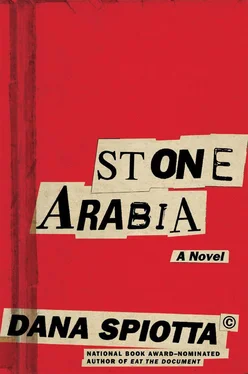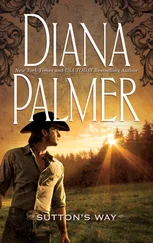This is one of the reasons I am so squeamish about looking back. Can I even do it? Can I be accurate at all? I have discovered how much memory can dissolve under pressure. The more I try to hold on to my ability to remember, the more it seems to escape my grasp. I find this terrifying. I have become alarmed at my inability to recall basic facts of the past, and I have worked to improve things. I have been studying various techniques and even tricks, and I should employ them. Memory, it seems, clings to things. Named things. Spaces. Senses. I even tried the old trick (memory technique #2, use Rhyme and Stories) where you apply a little poem to things you want to remember. A little nonsense thing, like His name is Ed and his nose is red. Or Bob’s birthday is 11-9-63, ’63 is when Kennedy died, 119 is 911 backward. So Kennedy’s assassination was an emergency is what you have to remember. And truly this stuff works, somehow giving your brain little games of association to help it organize its input. But there are two problems with this: I don’t want to fill my head with stupid games. In the time it takes to think up this stuff, I mean, your life is going by. I just hate it too much, I’ll just write down Bob’s birthday, seriously. And that is the other problem. I don’t want to remember someone’s name or some date. That is the kind of skill a politician needs so he can be fast with hundreds of names. That is an imprinting technique for the future. I’m not interested in that (there are only a handful of names in my life). I’m thinking about past events. I’m interested in recall, exact recall, of what was said, who said it and to whom. I want to know the truth, undistorted by time and revision and wishes and regrets.
Shortly after midnight, Nik did not notice the now smushy bar napkin or the wet spot it indicated. He lit a cigarette and leaned on the ledge of the back bar. He still had all his hair and he could shake it from his eyes, and I guess that made him seem youthful at first. But a closer look revealed how not-young he had become. As he inhaled, he squinted and his face revealed every frown and grimace he had ever made, every cigarette he had ever smoked. He hunched in his black T-shirt and his thin body humped at his belly. It looked as though a tight wedge of flesh had been appended to his middle. He still had muscle tone in his skinny-guy arms, but his sloped posture, which in the past gave him a blasé and phlegmatic glamour, now simply accentuated his paunch. He did not care, or seemed not to care, about his drinking belly or his general, considerable decay. He did not care that his hands shook when he lit his cigarette. He did not care when his conversation was brought to a halt by a coughing fit. He pursued a lifetime of abuse that could only come from a warped relationship with the future. Although I can’t say my brother didn’t believe in the future, I know he was never concerned with it. But for me sitting there, watching and thinking — now I remember — of my earlier visit to our mother, I didn’t like it one bit. It was not pleasant New Year’s contemplation for me. I was irritated by it, by him, and by the fact that the bar was wet and messy. I took the remnant of the napkin and sopped it around. He picked up a bar towel and wiped in front of me, an automatic and long-engrained bartender gesture. The bar towel smelled strongly of bleach and beer.
“I have to call Ada,” I said, and got up from the bar. “Tell her—”
“Yeah, I will.”
I went to the side door of the bar and stepped into the sudden quiet — the almost ringing quiet — of the alley.
I’d missed a call from Jay. It was eight a.m. in England. Very, very sweet. I didn’t listen to his message. I called Ada instead.
“Hey, Ma.”
“It’s Mom.” I couldn’t get used to people knowing who I am when I call.
“Yes—”
“Happy New Year, angel.”
January first continued after I slept for a while; I got up by six-thirty, as it seemed indecent to sleep late on the very first day of a new year. I drank a full deep cup of coffee and then cleaned the house, easy enough to remember because I always spend New Year’s Day cleaning the house. But again, habits and patterns also make this New Year’s Day hard to distinguish from other New Year’s Days, which were also spent cleaning, at least going back as far as when Will left. And even then it was the same, a deep day of cleaning, except Will would be there, so it would be a very different memory and not easily confused with these later, solitary New Year’s Days.
The cleaning was pleasant and ruthless: I emptied the refrigerator of every object, the jar of butter-flecked jelly, the container of capers floating in leaky brine, the optimistic bottle of multivitamins now in a moist, smelly clump, even a not very old bottle of expensive flaxseed oil. All must go, and so it was easy, just dumping without having to smell or decide anything. I did the same thing in the bathroom, though not quite as ruthlessly. Any really recent and expensive cosmetic or cream was spared, but most of the stuff also went. Then the scrubbing and washing: the grout, the shower curtain, the back step, the under eaves on the porch. I moved from there to the recycling. No magazine and no newspaper lived to see the New Year, no exceptions. If it wasn’t read by that date, it didn’t make it. I got it all out. Finally, I did my clothes. This was the most difficult task, but I usually started this in advance. Everything I hadn’t worn in the last year would be given to Goodwill. I continued in this manner to my desk, and by the evening I felt my space — modest though it is — was airy and open to the future. I felt liberated and purged and deeply in control. I have to admit that my rigor was not completely laudable. It existed in tandem and could only exist because of a twinning rigor on the other side of the Santa Monica Mountains. As I did my discarding, my righteous, relentless emptying, Nik was doing the opposite. He was organizing the year’s remnants. He was logging and archiving and filing it all. The whole swollen yearlong cumulus. He discarded hardly anything; he wanted souvenirs of every moment. And his accumulations somehow underwrote my eliminations. My liberation was brought to you by the ordered collecting and keeping of my brother. But of course his task was much more complicated than mine. He not only kept, he documented. He annotated, he footnoted, he wrote, he arranged. He updated the Chronicles. (Okay, the Chronicles. Am I already going to digress? Because going into the Chronicles at this point could be a huge digression. But okay.)
By 2004 Nik had thirty-odd volumes of the Chronicles (going back to 1978 officially; unofficially they were retrofitted back to 1973 with the rise of the Demonics). They were all written exclusively by him. They are the history of his music, his bands, his albums, his reviews, his interviews. He made his chronicles — scrapbooks, really — thick, clip-filled things. He wrote under many different aliases, from his fan club president to his nemesis, a critic who started at Creem magazine and ended up writing for the Los Angeles Times, a man who follows and really hates his work. Nik had given him plenty of ink these past few years.
It is odd to think Nik’s Chronicles took some weight off me and my life. I am only tangentially part of the Chronicles. They are truly all about Nik. When I am mentioned, it is largely as part of events invented by Nik. I am only ever in the Chronicles as a figure in Nik’s narrative. Like when he produced my girl band back in the early eighties — Hair Krishna. And when I sang backup, or when I happened to be in the house when an interview or photo session happened. It was always entertaining to read what he had me say about his latest record. Or when he had me trying to capitalize on being Nik Worth’s sister by launching my own failed TV variety show (which apparently I insisted be called My Turn. I thought that was pretty weak and just part of Nik conflating all the women in his life with characters from the Valley of the Dolls . I guess I was the Patty Duke character to him, with his projecting on to me a diva-like longing for fame and attention). In the later Chronicles I think I also visited him in one of his stints in rehab (court-ordered), and — oh yes, I testified on his behalf when he was suing his former manager. And one other time when his bandmates all sued one another for divorce. I apparently submitted a friend-of-the-court brief, an unsolicited amicus curiae. So the Chronicles were by no means a chronicle of my life. Ada, for instance, was hardly ever mentioned (a few Linda McCartney— style photos of Nik with baby Ada’s serious, round face peeking out from under his parka). Nik’s Chronicles adhered to the facts and then didn’t. When Nik’s dog died in real life, his dog died in the Chronicles. But in the Chronicles he got a big funeral and a tribute album. Fans sent thousands of condolence cards. But it wasn’t always clear what was conjured. The music for the tribute album for the dog actually exists, as does the cover art for it: a great black-and-white photo of Nik holding his dog with an intricate collage along the edge consisting of images of the Great K9s of History from Toto to Lassie to Rin Tin Tin (credited as “the border collieage compiled by N. Worth”—Nik loved puns, and in the Chronicles all his loves ran without restraint, unfettered and unashamed). But the fan letters didn’t exist. In this way Nik chronicled his years in minute but twisted detail. The volumes were all there, a version of nearly every day of the past thirty years.
Читать дальше












